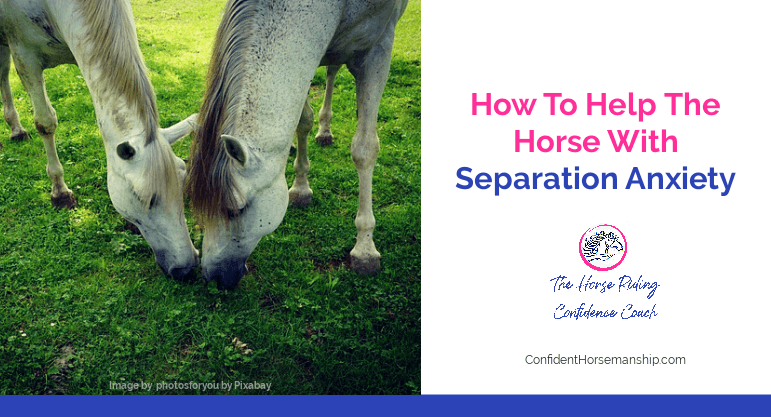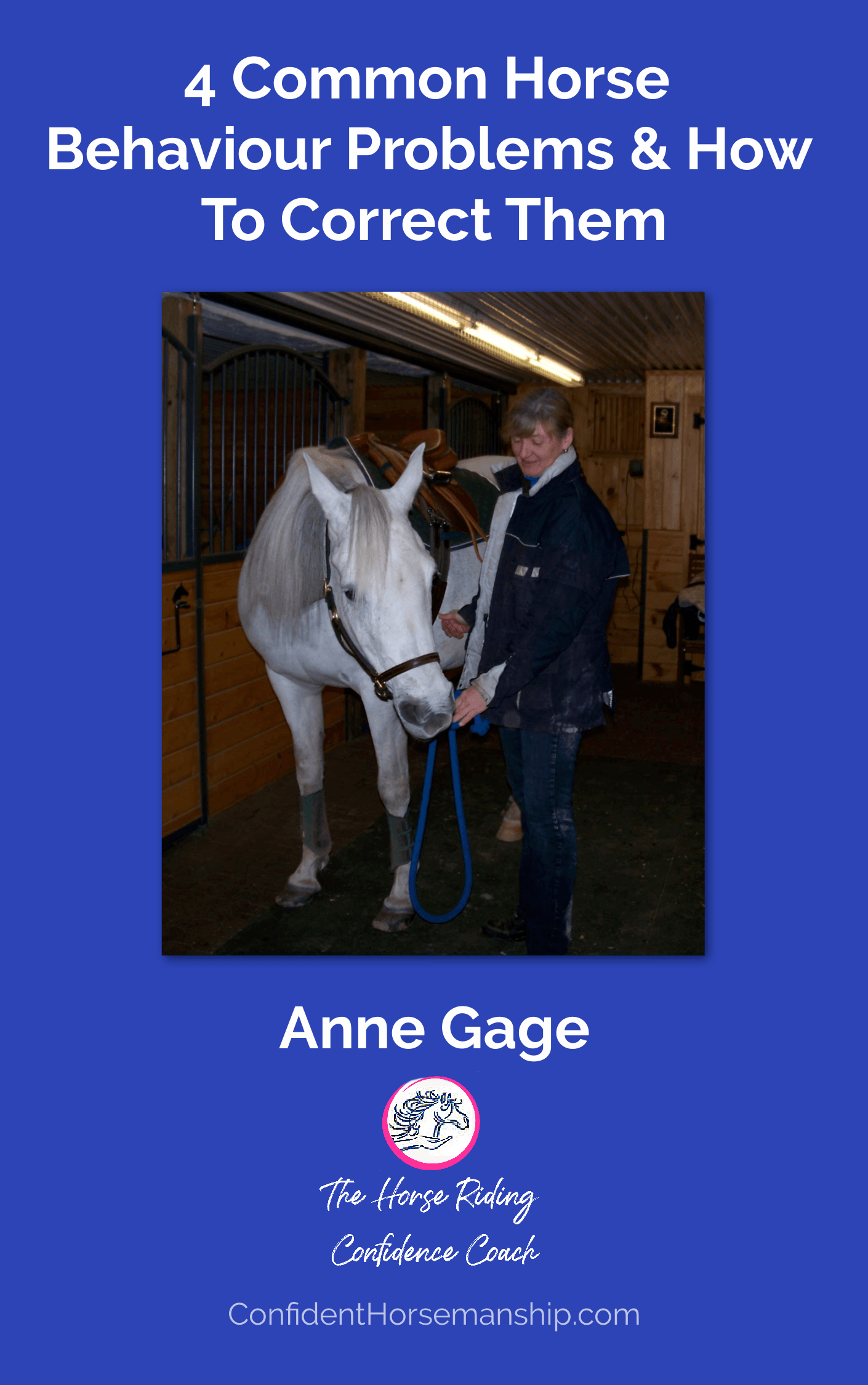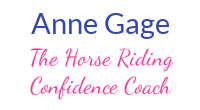
Whether you call it barn sour, buddy sour, herd bound or separation anxiety ... your horse's stress is real. And his behaviour is can be somewhere between inconvenient to annoying. Or even dangerous to you and your horse - as well as to other people and horses.
There's a reason for the behaviour and a way to resolve it. Read on to find out the best way to handle it.
Question: "I recently adopted a horse from a rescue. She is kind, but nervous and gets really anxious when taken out of her paddock. She has had some down time at the new farm and has settled in with the herd she is turned out with. I'm not sure what to do and now I am getting nervous about handling her. I am not very confident, but I do want to win the trust of this mare."
Answer: This is not an uncommon situation for anyone who has adopted or rescued a horse from the race track, a rescue facility or an auction. Giving these horses time just to adjust to the new environment and routines is as important as any training you do with them. There are so many adjustments they have to make in their new lives. Horses coming from these types of situations may have had multiple owners or trainers, and may even have suffered from neglect or abuse. That is a tough life that does not engender much trust, respect or confidence in people or unfamiliar situations.
For the first few weeks (even months), simply focus on building a bond with your horse. Focus all your interactions with her on building mutual trust, respect and confidence between you. Having this bond will help resolve any herd separation anxiety.
By focusing on bonding with this mare through ground work - grooming, hand walking, lunging, long lining etc. - you can change this dynamic so that she feels as safe with you as she does with her herd mates.
Initially, to keep her stress level as low as possible, work with your horse where she is still close to her herd. This may be in the paddock (if it is safe) or just on the other side of the fence.
- Encourage her to come into a calm shape. When a horse feels calm, her poll is level with or lower than her withers. Picture a horse dozing or grazing. You can change how your horse feels by changing her posture. With contact on your lead rope, gently rock her head side to side with downwards pressure - be careful not to pull her head down. Keep contact on the lead rope but don't pull or jerk on it. Jerking or pulling will make her feel more anxiety, cause her to throw her head up and keep adrenaline running through her system.
- Respect her need to move when she is anxious. Remember that horses are flight animals. Asking her to stand still only causes her to become more stressed. Instead, direct her movement by calmly sending her around you in a circle. Having a long lead rope or even a lunge line allows you to send her a safe distance away from you if she gets too rambunctious.
- Protect your personal space by keeping clear boundaries about how close you allow her to come to you. Ask her to bend around you by massaging her girth just about where your leg hangs when you are riding.
Click here to watch a short video showing how this technique was used to help a mare with separation anxiety in the barn.
When your horse is able to maintain this calm shape, then gradually expand the distance from her herd. If either of you get too stressed, move back to your comfort zone where you can both exhale and regain calmness.
This process will probably take several sessions, but is well worth the time and effort in the long run.
When you adopt a horse from a rescue, think of that horse as a foster child who has been passed from home to home and has never developed a trusting relationship with a human.
He or she needs time to adjust to the new environment, de-stress physically and mentally, and build trust, respect and confidence in the new situation.
With consistency and calmness, your horse's behaviour will improve and she will feel safe with you. Enjoy the journey.

FREE DOWNLOAD
Stop Feeling Anxious, Annoyed or Frustrated With Your Horse Because Of These Common Behaviour Problems
This free guide shows you 4 common horse behaviour problems and tips on how to begin to change them. Start using them right away to improve your partnership with your horse.
*You will receive my weekly email newsletter with tips on building your confidence and partnership with your horse. You can unsubscribe at any time.

